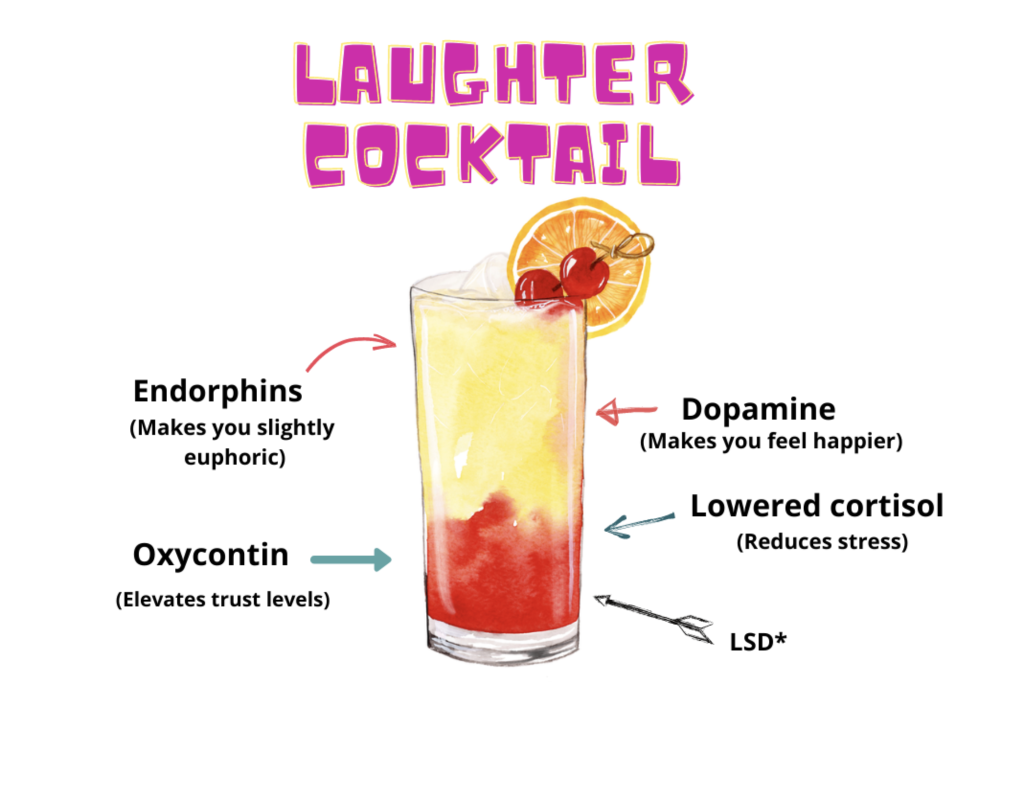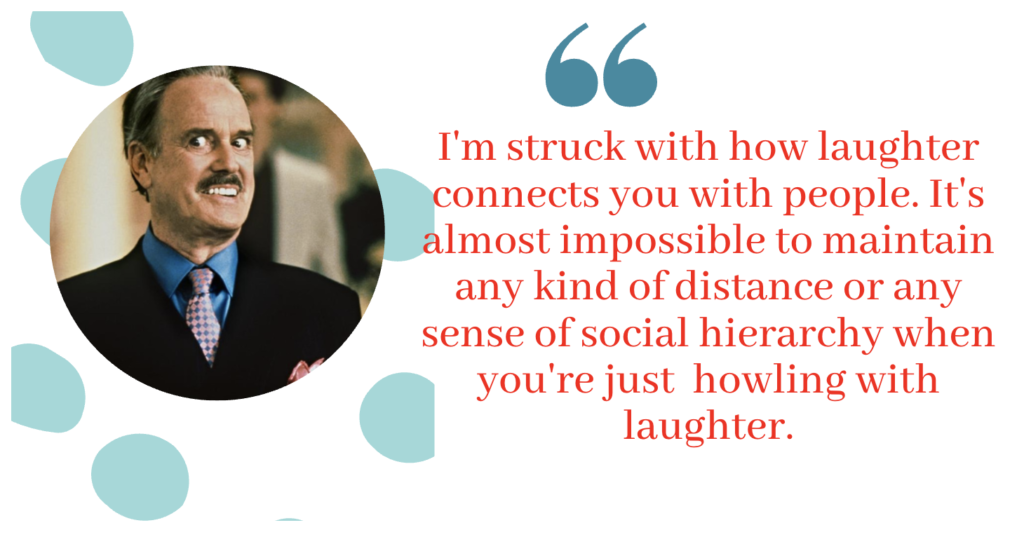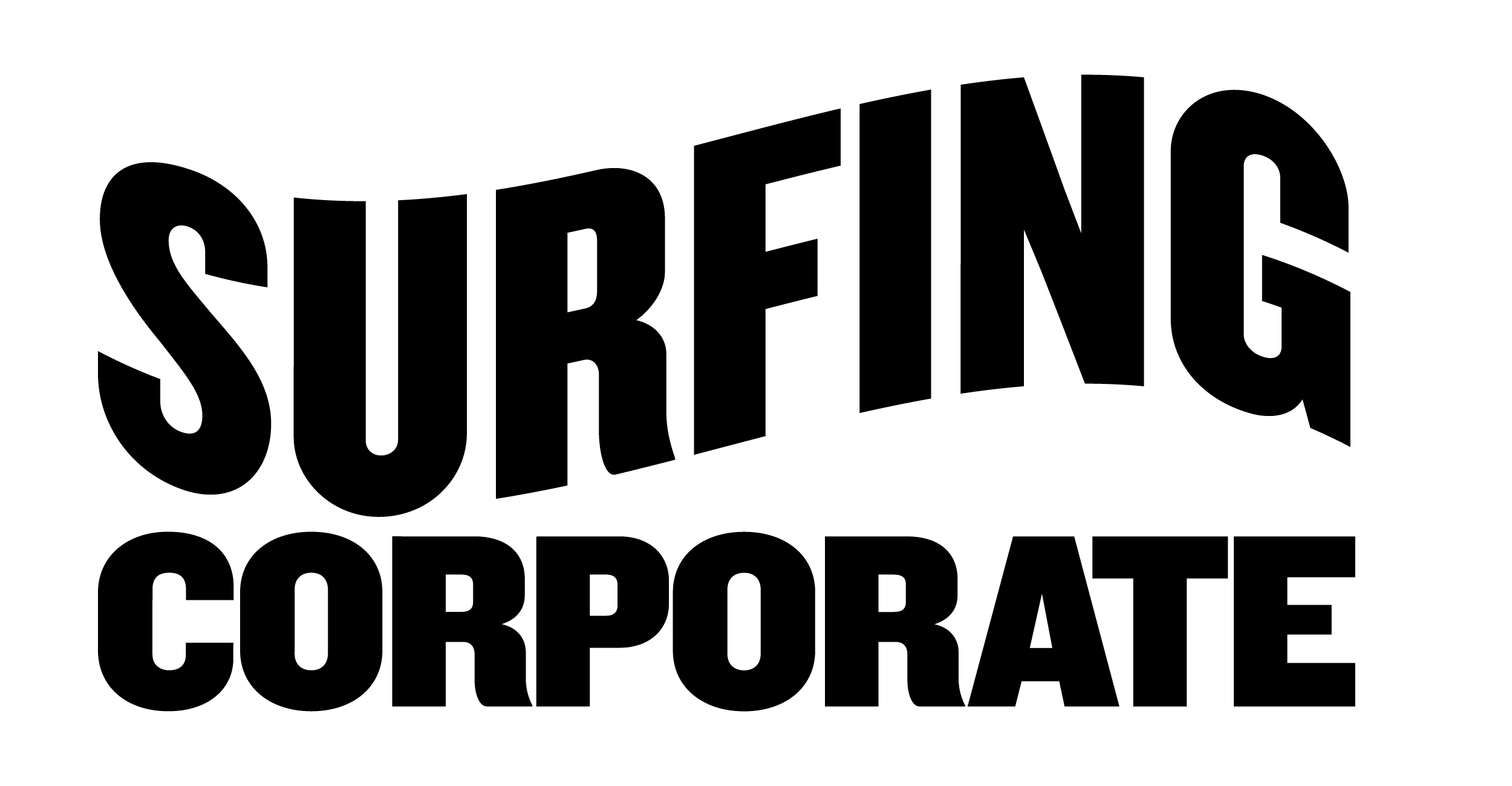Why Humor at Work Works
For many corporations, in order to be “successful,” you’re required to learn corporate jargon and conduct yourself in a professional manner: you must be serious, measured, always composed and non-emotional. But why? Why is being serious such a positive trait in the workplace? Why do we tend to assume that someone who is serious is more trustworthy than someone who doesn’t take themselves too seriously?
Two professors of the Stanford School of Business, Jennifer Aaker and Naomi Bagdonas, decided to take a deep dive into the role humor plays in the workplace. They recently published a book called Humor, Seriously: Why Humor is a Secret Weapon in Business and Life. In this post, I’ll explore some of my favorite parts of the book.
“The collective loss of our sense of humor is a serious problem afflicting people and organizations globally (…) We don’t need more ‘professionalism’ in our workplace. We need more human connection.”
Preach, professors, preach. And what better way to achieve human connection than laughter? Aaker and Bagdonas state that according to surveys of hundreds of executive leaders conducted by Robert Half International and Hedge-Cronin & Associates, despite all the seriousness that prevails in corporate,
“98% of executive leaders reported preferring employees with a sense of humor, while 84% believe that employees with a sense of humor do better work.”
The study goes on: “Humor affects not only how our leaders perceive us, but also how our peers do: Showing our sense of humor can make our peers more likely to attribute higher status to us and to vote us into leadership roles.”
And I would know, because I’m pretty much the poster child of this: I somehow managed to climb high up the corporate ladder despite my many corporate political shortcomings. Why? I honestly think it was because I was funny, approachable, had a self-deprecating humor, and did not take myself too seriously. I also didn’t do corporate lingo, I gave respectful –but honest– feedback, and I knew when to throw in jokes and de-escalate tense meetings. Overall, I just didn’t follow the norms when it came to corporate protocol, and people seemed to like me for it. For example, during my tenure as SVP for Marketing and Creative, there was an important annual marketing summit where only high-level executives were invited. All attendees were asked to submit a picture for the digital attendee directory. As expected, everyone sent their best corporate headshot, where they looked like high-end professionals who seriously knew their sh*t. And then, there was my pic:

I’m not joking. This was the actual photo I sent, and it was officially used for that event. My coworkers thought I was insane, BUT, here’s the thing: when I arrived at the summit, several people who I didn’t even know came up to me and said things like, “Awesome picture!” and one even said, “The moment I saw your pic and I knew I’d like you.”
My presentation at that Summit was the best I’ve given. People laughed and even came up to me afterwards to congratulate me. Honestly, I think that sending that picture made many people who didn’t know me WANT to give me a chance. Like, “let’s see what that crazy picture lady has to say.”
Aaker and Bagdonas, continue to lay down the science: “When we laugh, our brains release a cocktail of hormones that make us feel happier (dopamine), more trusting (oxytocin), less stressed (lowered cortisol), and even slightly euphoric (endorphins). By working humor into our professional interactions, we can serve our colleagues this powerful hormone cocktail, and in doing so, we can literally change their ––and our–– brain chemistry.

* Kidding. Just making sure you’re paying attention.
The corporate workplace could benefit tremendously from an endless supply of laughter cocktails (real cocktails could also help a lot.) The authors state that behavioral research links the use of humor in business to an increase in the following:
POWER, by enhancing others’ perception of our status and intelligence, influencing their behavior and decision making, and making our ideas more memorable.
BONDS, by quickening the path to trust and self-disclosure in new relationships and making us feel more satisfied with our relationships over time.
CREATIVITY, by helping us see connections we had previously missed and making us feel safe to share our risky and unconventional ideas.
RESILIENCE, by reducing stress in the moment, allowing us to bounce back more quickly from setbacks.

Humor is a powerful weapon. It charms and disarms, it makes us feel better about ourselves and others, and it can even cure cancer.**
Let’s embrace humor in the workplace; let’s not take ourselves too seriously; let’s stop talking like pretentious robots. Let’s make laughing at work not only okay, but a quality that is highly valued. And please let’s normalize cocktail Fridays.
**Not FDA approved yet.***
*** This is a joke.
Don’t miss our next post, Why Humor Works at Work – Part 2, where we explore today’s trust crisis in corporate leadership, and how humor can play a big role in fixing this problem.
Keep laughing, surfers.




